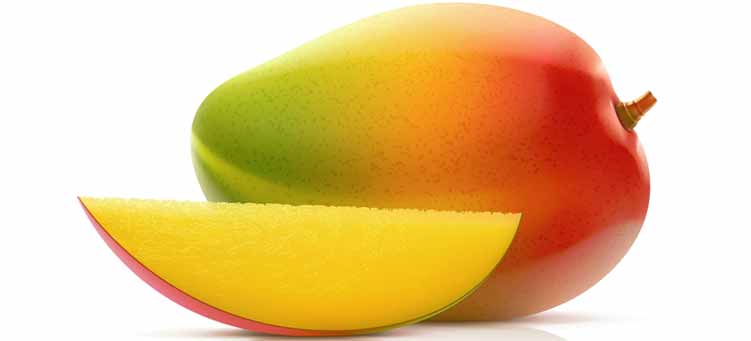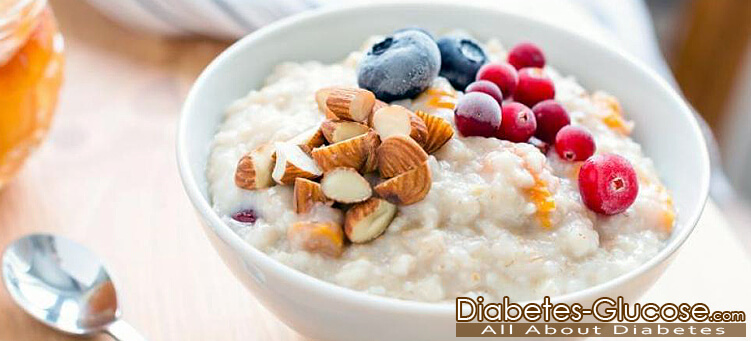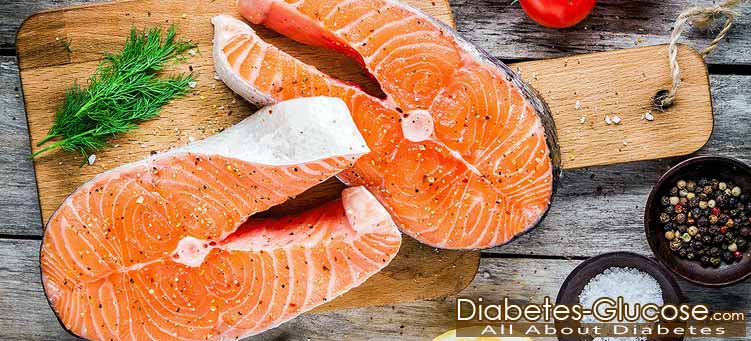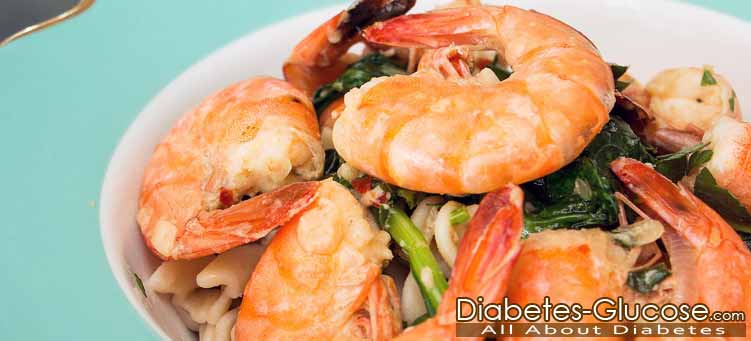The health benefits of mangoes have always been debatable because of their excessive sugar and calorie content which generally overpower the nutritional value of the fruit. Therefore, diabetics are mostly advised to eat mangoes in moderation. But the jury is still out on whether or not mangoes are good for diabetics.
Just the thought of mangeos may elicit images of tropical beaches, palm trees, ocean waves gently covering the sandy beach…eating mangeos by the ocean with cool ocean breezes wafting over you…
Mangos are the fruit of the mango tree—and it brings images of a tropical island because it is a tropical fruit. Mangos are actually the world’s most popular fruit! Mangos are full of vitamins—particularly Vitamins A and C—where one mango provides about 1/3 of the RDA for Vitamin A and nearly 100% of the RDA for Vitamin C.
Mangos also contain significant amounts of Vitamins E, K and B complex vitamins (except for Vitamin B12). Mangos are also high in fiber and contain calcium, potassium and copper. They also contain some omega-3 and omega-6 fatty acids, though overall, are very low in fat. One ripe mango can contain 31 grams of sugar, but its glycemic load is only 10—the fiber in mango helps limit the rapid absorption of the sugars. One mango also has 135 calories—not so bad![1]
Mangos are higher in sugars than many other fruits, but that doesn’t mean you shouldn’t eat mangeos. The Mayo clinic recommends that one serving of fruit should contain 15 grams of carbohydrate—that translates to about ½ cup of mango. If a fruit has lower carbohydrate or sugars, that generally means you can enjoy more of it—but it doesn’t mean you can’t enjoy the higher carbohydrate fruits![2] Just remember to keep track of the total carbohydrates in a day.
In fact, studies indicate that eating mangeos can help prevent diabetes complications and may even treat prediabetes and prevent diabetes.
Is it Safe for Diabetics to Eat Mangoes?
Why Would Mangos Be Good For Diabetes?
Most nutritional sites contain information like that given above—the level of carbohydrates, proteins, fats, vitamins and minerals. That is great, but they very often don’t include information on all the other nutrients in food—the antioxidants, the plant sterols and other phytonutrients.
One of the non-listed components of mangeos is a substance known as mangiferin—which, in addition to anti-inflammatory and anti-viral activities, also can help lower blood sugar levels.[3] This substance also has been shown to stabilize and support blood vessels.[4] Other research indicated that other components in mangeos including quercetin and a derivative of mangiferin can modulate the same cellular constituents that are the targets of the anti-diabetes drugs, the thiazolidinediones also known as the glitazones which include rosiglitazone and pioglitazone.
These targets for the glitazones are the peroxisome proliferator-activated receptors or the PPARs. There are a number of PPARs that are involved in blood sugar regulation as well as in cholesterol regulation. More recent research has indicated that mangiferin may also affect certain enzymes that can positively influence the metabolism of blood sugars and to protect against fatty deposits in the liver.[5]
While most of the research on the benefits of mango have been done either in the lab setting, in cell cultures or in animal studies, one recent study shown that eating freeze-dried mango reduced blood sugar levels in both men and women. 20 obese adults ranging in age from 20-50 years old were given the freeze-dried mango for 3 months. While they did not lose weight, the men did experience a decrease in hip circumference—no such luck for the women.
Mango was also recently tested in 10 people with T2D. The glycemic response to a number of fruits was tested—the fruits included bananas, oranges, pineapples, pawpaw and mango.
The portions were standardized so that everyone had 50 grams of carbohydrate per serving. Mango showed the least rise in post-meal blood sugar levels—second and third least were oranges and pawpaws.[6]
Also….
Don’t forget that mangeos are a great source of Vitamin C and Vitamin A. Vitamin C is an important anti-oxidant that can recycle itself and be used over and over again to reduce the levels of damaging free radicals—believed by many to be at least one of the sources of the complications of diabetes—the neuropathy, the retinopathy, the damage to blood vessels and the damage to the kidneys.
Humans are one of the few mammals on the earth that cannot make their own Vitamin C—we have to get our vitamin C from foods. One study showed that 1000mg of Vitamin C a day can help decrease blood sugar levels as well as fat level in the blood.[7] Other studies have shown that same amount—1000 mg taken in 500mg tablets twice a day—can lower the overall inflammatory status in diabetic patients with or without high blood pressure.[8]
While it is not known what specific effect vitamin A may have on diabetes patients, we do know that vitamin A is important for normal sight, a normal immune system and thyroid health. We also know that vitamin A has a number of important gene regulation functions.
Mangos—the last word?
By now you probably know there is hardly ever the last word in diabetes. However, it can be said with confidence that mangeos are a healthy fruit and have been directly shown to have benefit on controlling blood sugar and may very well work via the same types of cell receptors that the glitazones do.
We also can be certain that as long as you continue to keep track of your total daily carbohydrate, having some mango is absolutely a good idea. The future may bring more information, but for now, close your eyes, imagine yourself on that tropical island and have a bit of juicy and delicious mango!
References
- http://nutritiondata.self.com/facts/fruits-and-fruit-juices/1952/2
- http://www.mayoclinic.org/diseases-conditions/diabetes/expert-answers/diabetes/faq-20057835
- Muruganandan, S.; Srinivasan, K.; Gupta, S.; Gupta, P. K.; Lal, J. Effect of mangiferin on hyperglycemia and atherogenicity in streptozotocin diabetic rats. J. Ethnopharmacol. 2005, 97 (3), 497–501.
- Daud, Noor Huda, et al. “Mango extracts and the mango component mangiferin promote endothelial cell migration.” Journal of agricultural and food chemistry 58.8 (2010): 5181-5186.
- http://www.ncbi.nlm.nih.gov/pubmed/25827900
- http://www.ncbi.nlm.nih.gov/pubmed/21984455
- http://www.ncbi.nlm.nih.gov/pubmed/18160753
- http://www.ncbi.nlm.nih.gov/pubmed/26170625
Source: thediabetescouncil.com



